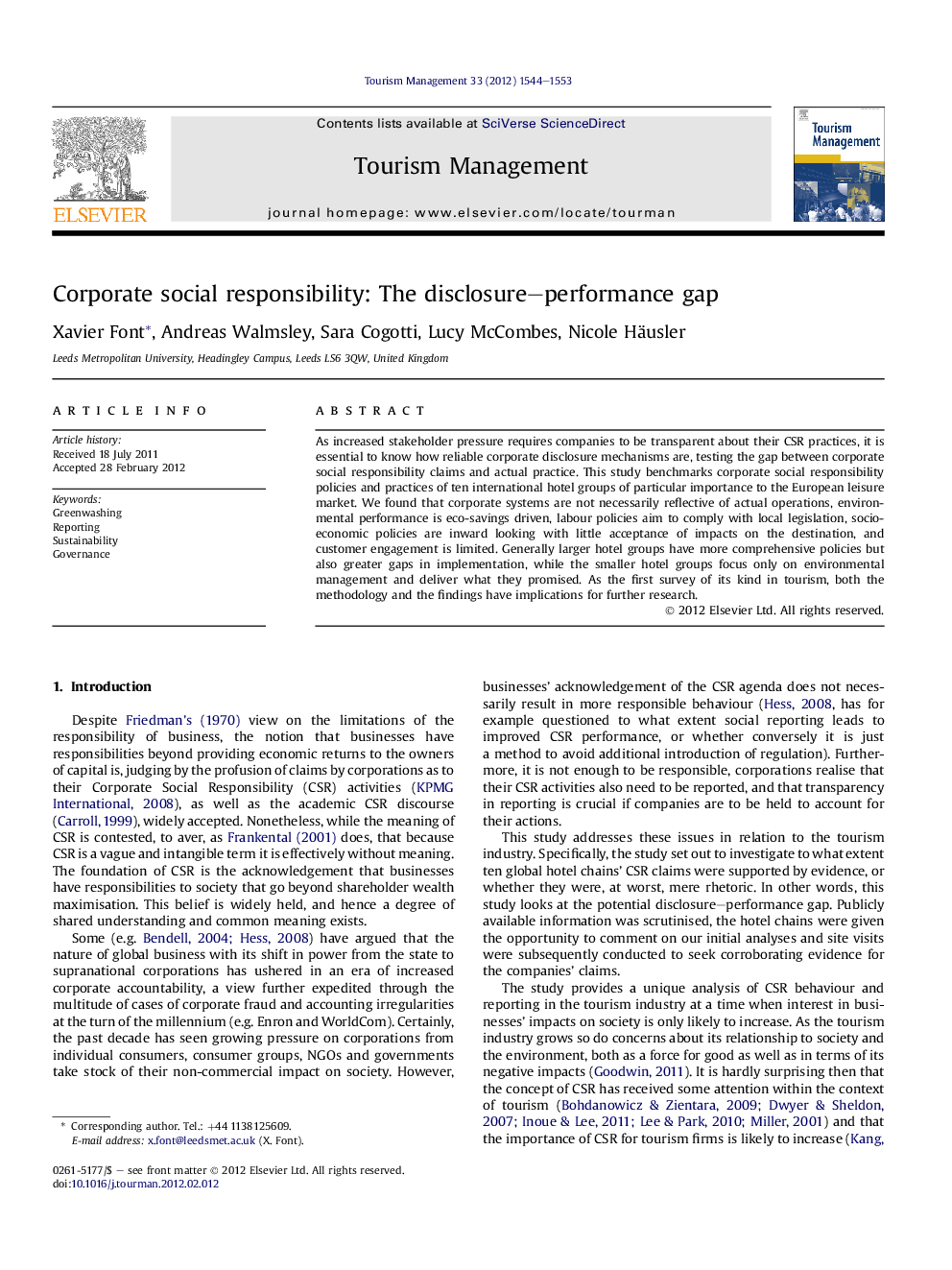| Article ID | Journal | Published Year | Pages | File Type |
|---|---|---|---|---|
| 1012560 | Tourism Management | 2012 | 10 Pages |
As increased stakeholder pressure requires companies to be transparent about their CSR practices, it is essential to know how reliable corporate disclosure mechanisms are, testing the gap between corporate social responsibility claims and actual practice. This study benchmarks corporate social responsibility policies and practices of ten international hotel groups of particular importance to the European leisure market. We found that corporate systems are not necessarily reflective of actual operations, environmental performance is eco-savings driven, labour policies aim to comply with local legislation, socio-economic policies are inward looking with little acceptance of impacts on the destination, and customer engagement is limited. Generally larger hotel groups have more comprehensive policies but also greater gaps in implementation, while the smaller hotel groups focus only on environmental management and deliver what they promised. As the first survey of its kind in tourism, both the methodology and the findings have implications for further research.
► Corporate social responsibility policies and practices differ widely. ► Larger hotel chains normally have more comprehensive policies. ► Environment and customer engagement are the greatest disclosure–performance gaps. ► Low gaps are due to policies aiming to comply with legislation.
